Senior Tax Accountant Cover Letter Examples

May 29, 2025
|
12 min read
Master the art of crafting a Senior Tax Accountant cover letter that adds up to success. Learn how to sum up your skills and experience while decoding the perfect formula to catch a hiring manager's attention.
Rated by 348 people
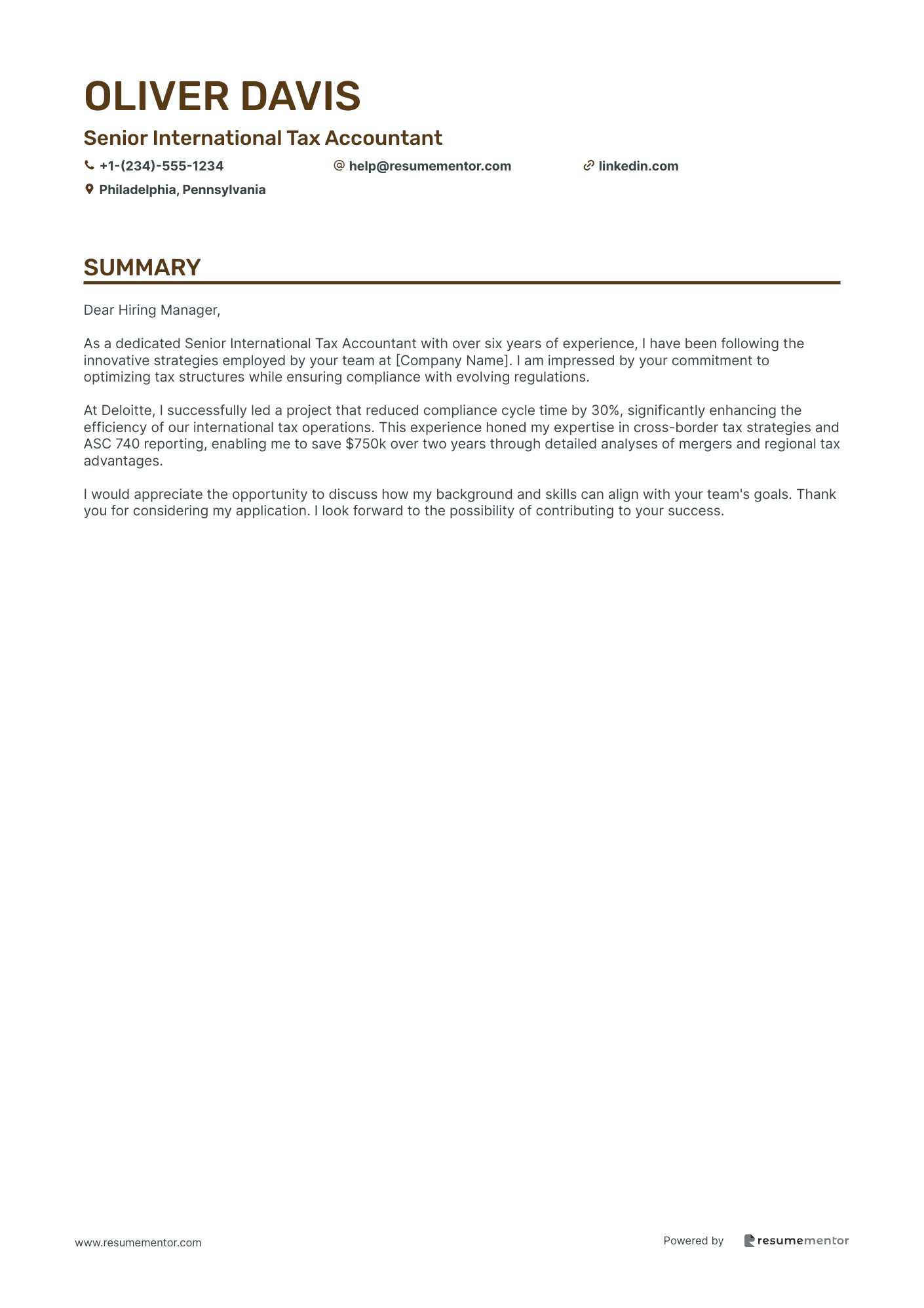
Senior International Tax Accountant
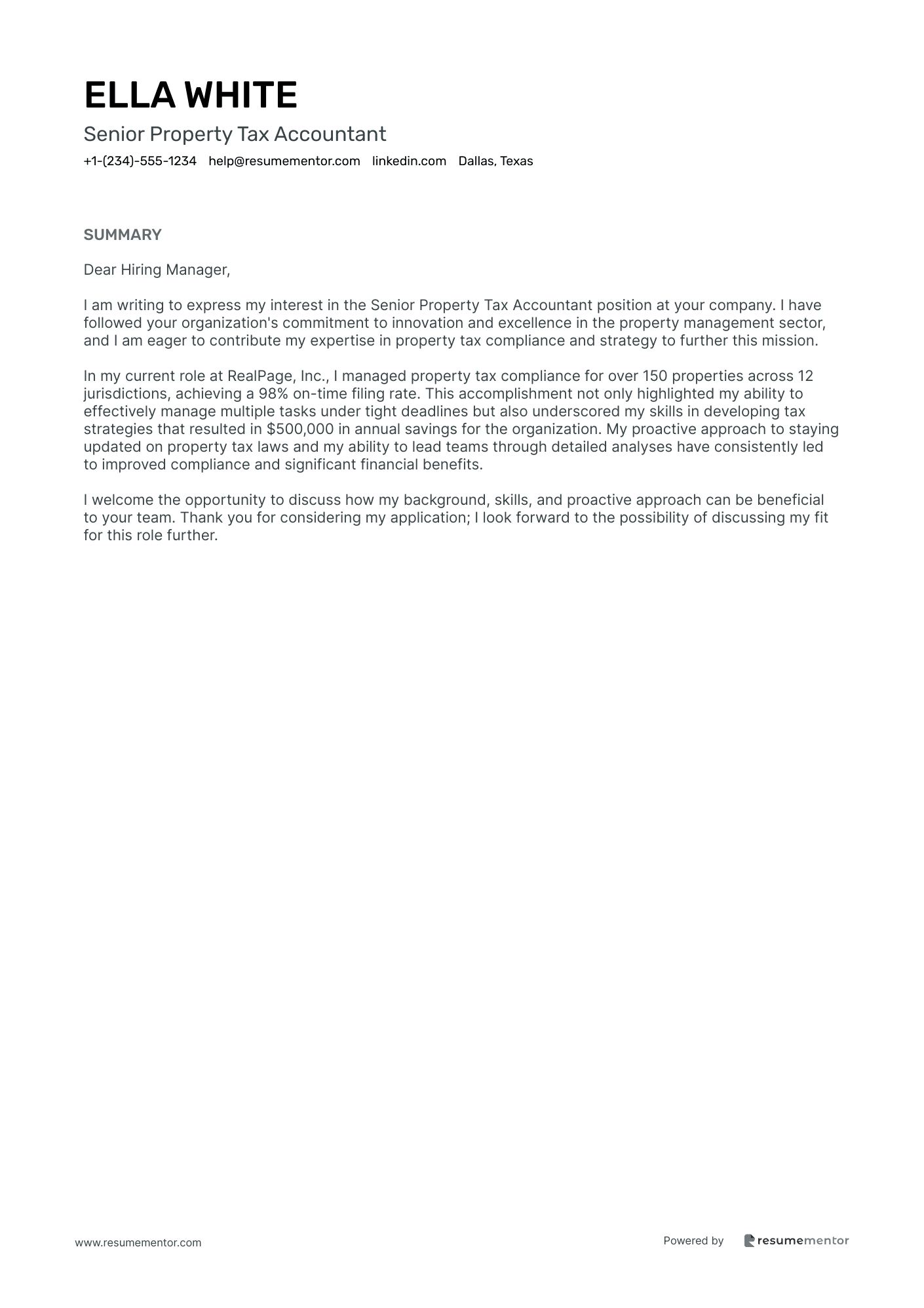
Senior Property Tax Accountant
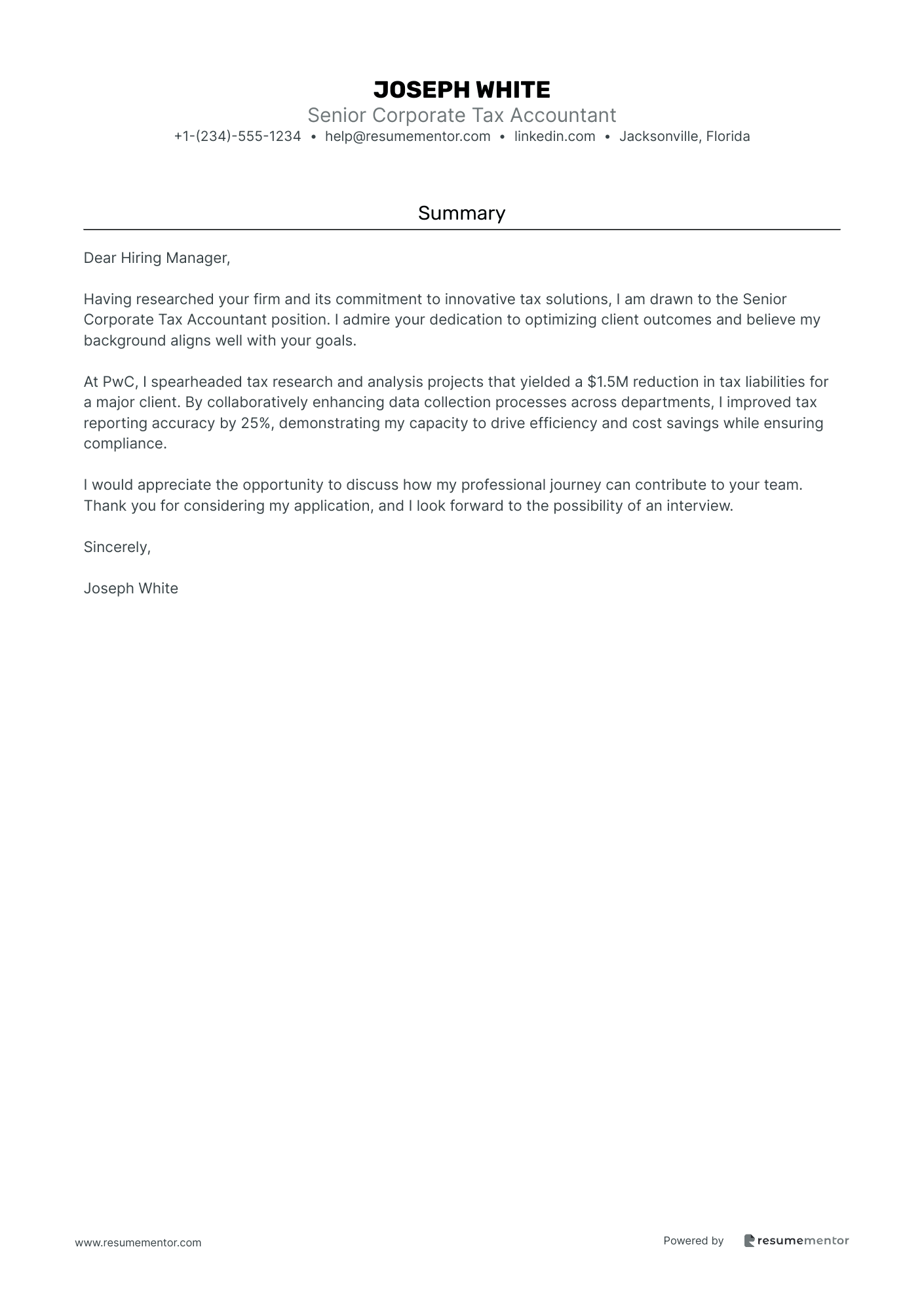
Senior Corporate Tax Accountant
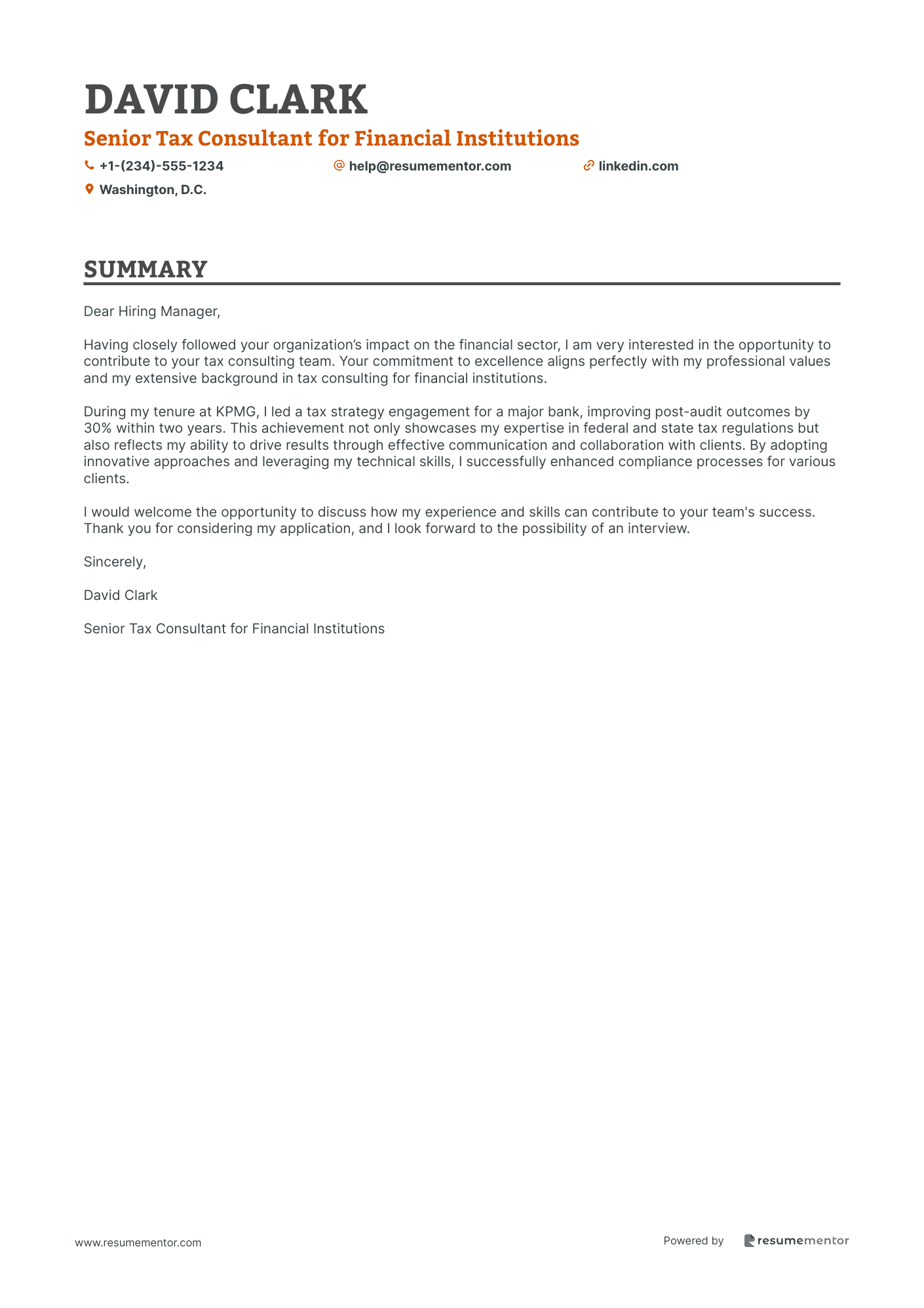
Senior Tax Consultant for Financial Institutions
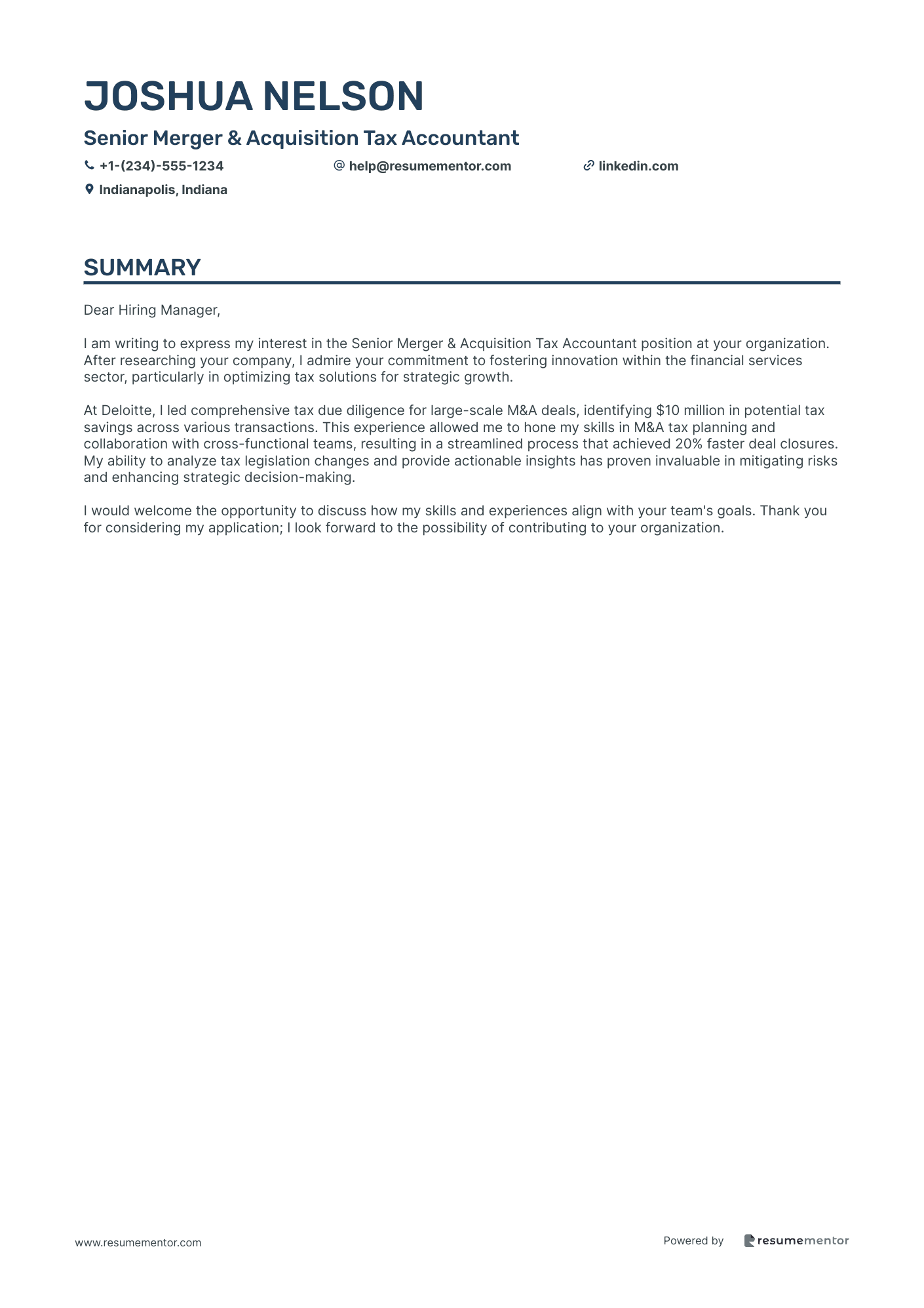
Senior Merger & Acquisition Tax Accountant
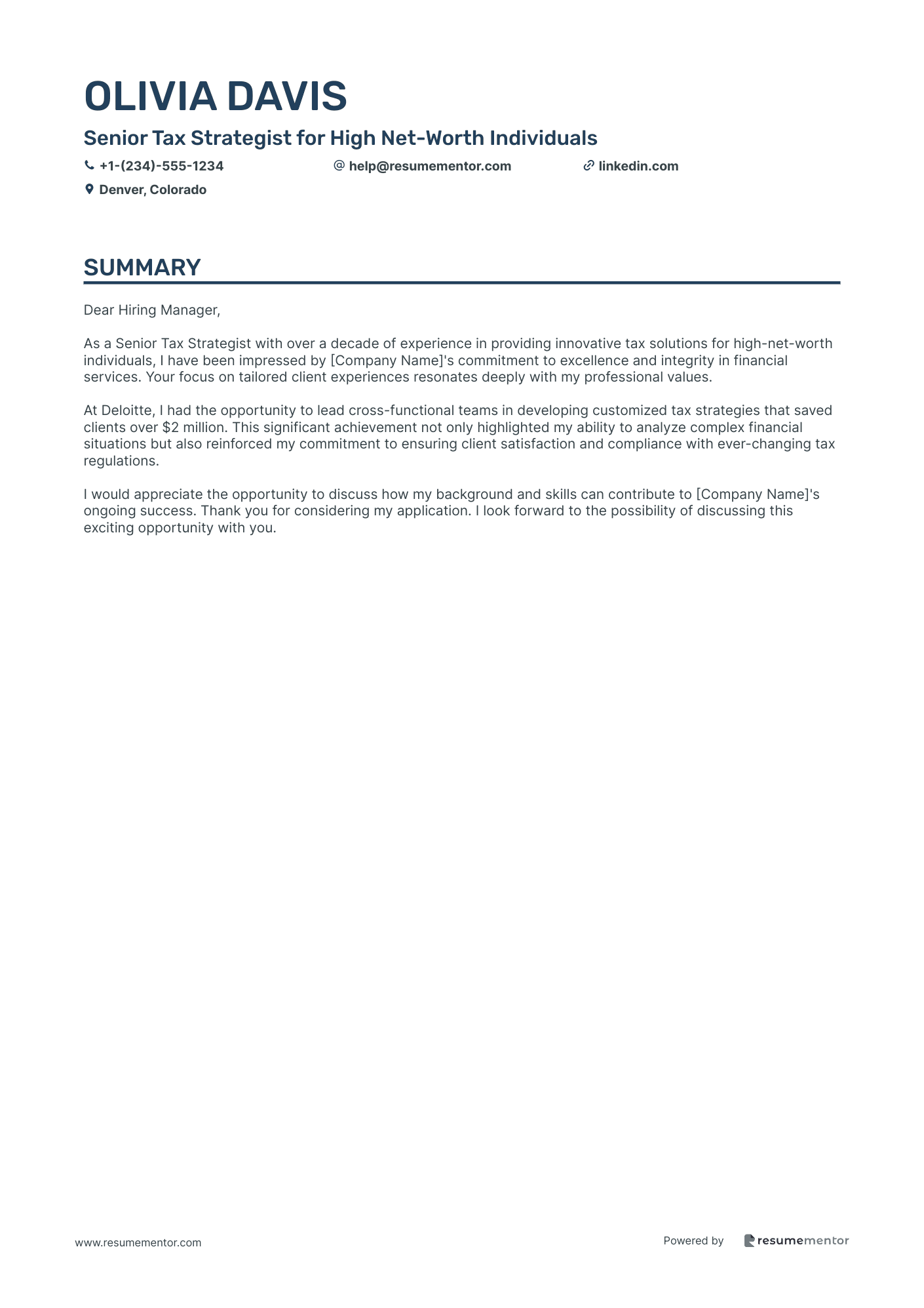
Senior Tax Strategist for High Net-Worth Individuals
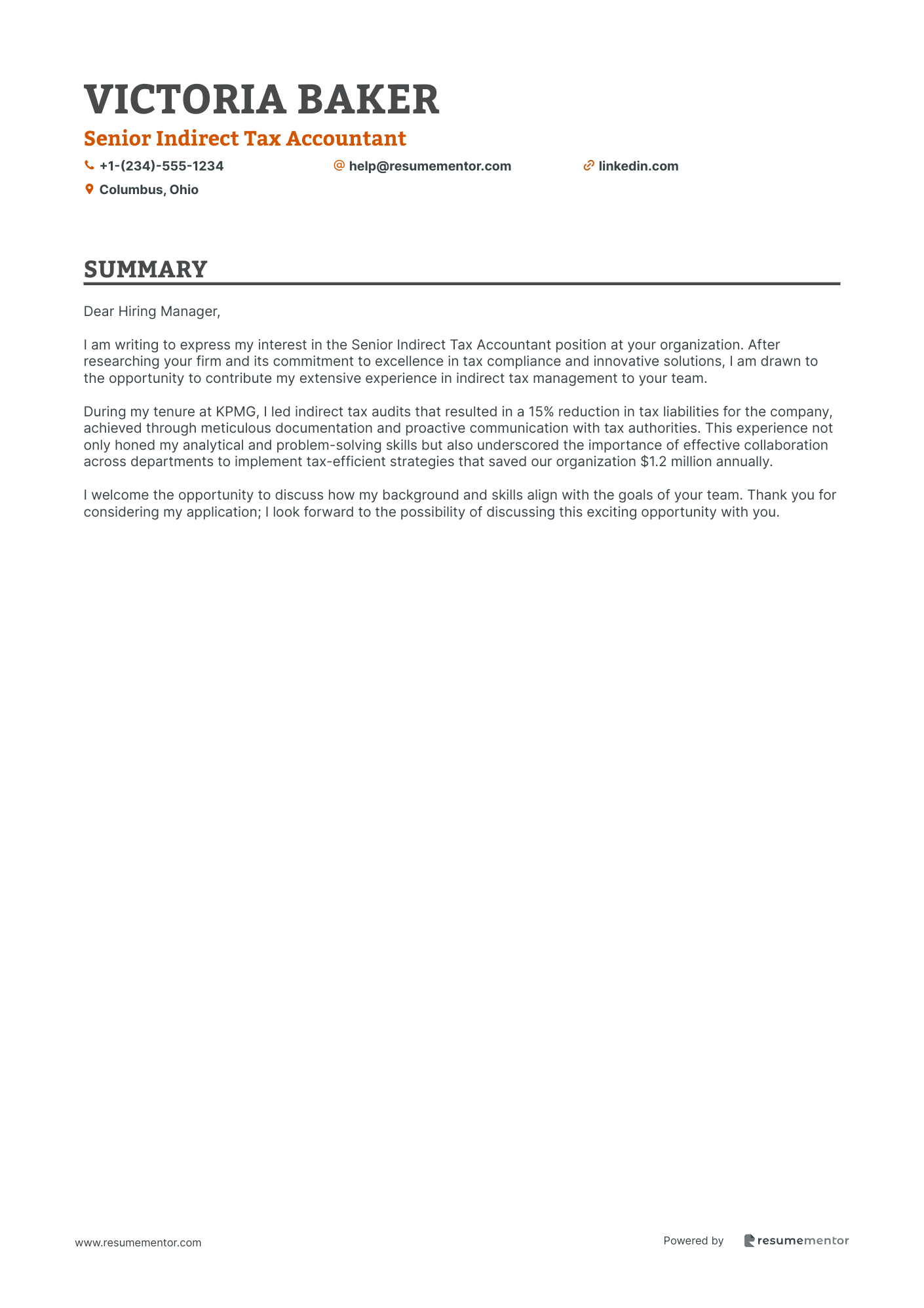
Senior Indirect Tax Accountant
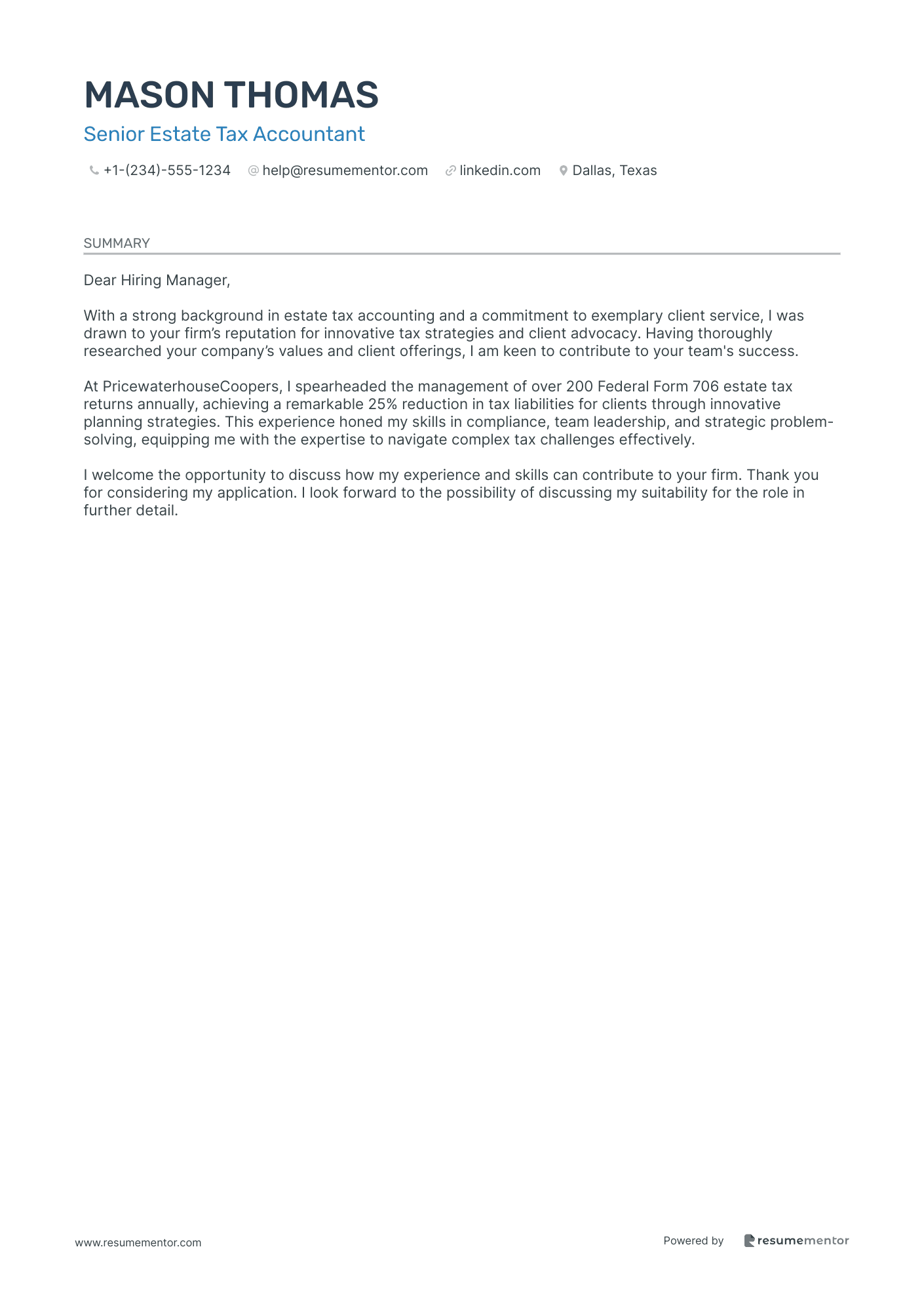
Senior Estate Tax Accountant
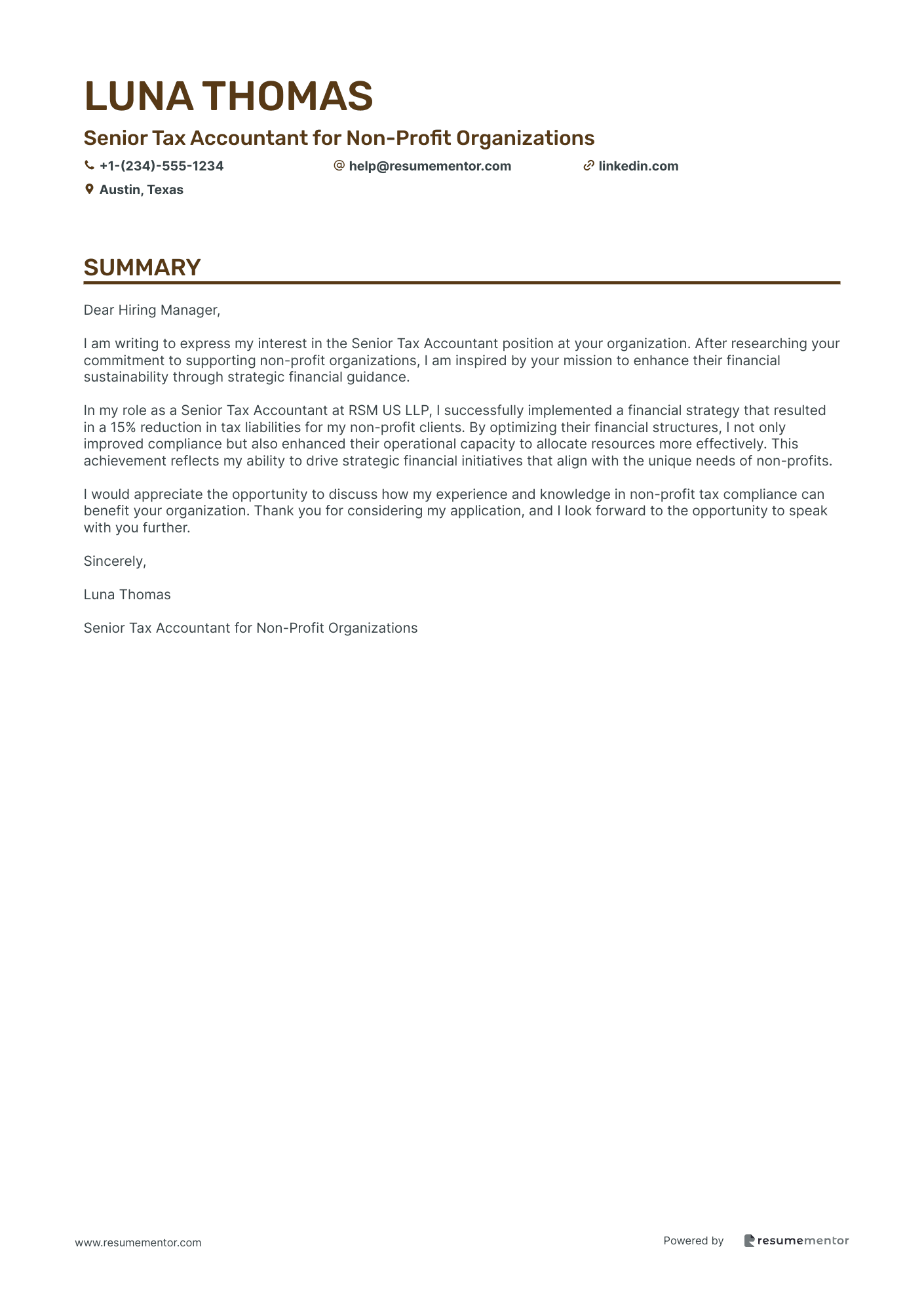
Senior Tax Accountant for Non-Profit Organizations
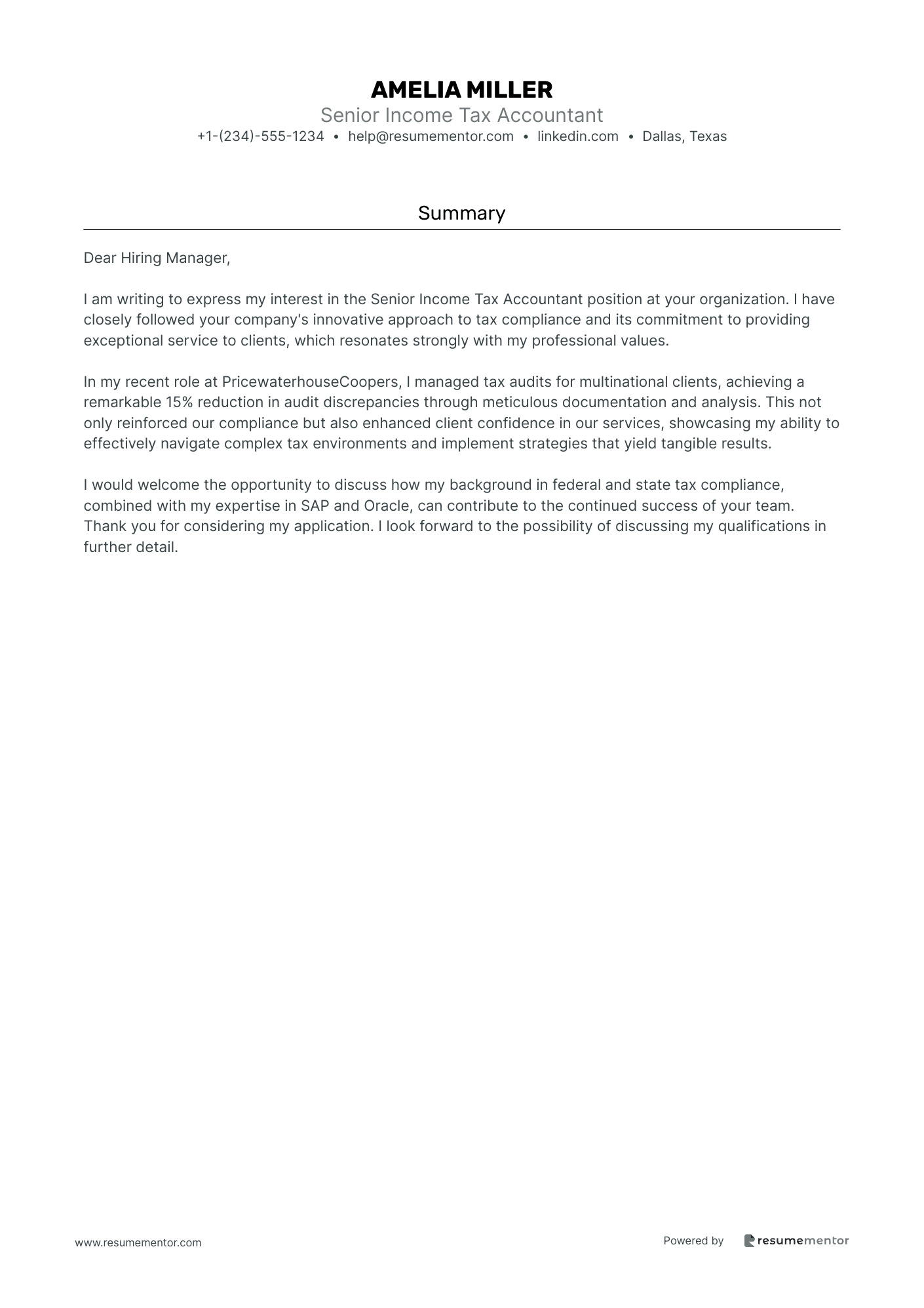
Senior Income Tax Accountant

Senior International Tax Accountant cover letter sample
Senior Property Tax Accountant cover letter sample
Senior Corporate Tax Accountant cover letter sample
Senior Tax Consultant for Financial Institutions cover letter sample
Senior Merger & Acquisition Tax Accountant cover letter sample
Senior Tax Strategist for High Net-Worth Individuals cover letter sample
Senior Indirect Tax Accountant cover letter sample
Senior Estate Tax Accountant cover letter sample
Senior Tax Accountant for Non-Profit Organizations cover letter sample
Senior Income Tax Accountant cover letter sample
Related Articles

Continue Reading
Check more recommended readings to get the job of your dreams.
Resume
Resources
Tools
© 2026. All rights reserved.
Made with love by people who care.
